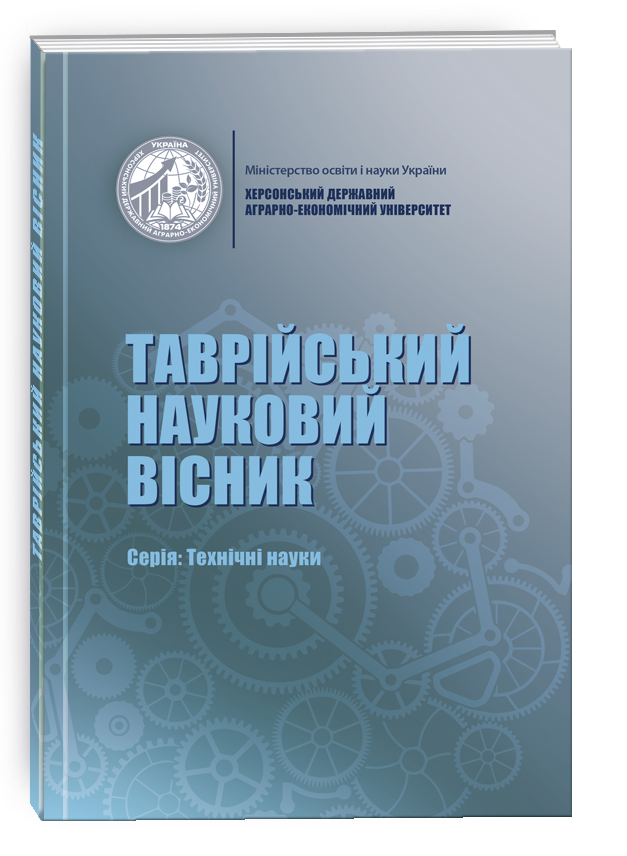INVESTIGATION OF QUALITY INDICATORS OF SAUCES USING ALTERNATIVE PROTEINS FOR MILITARY NUTRITION
DOI:
https://doi.org/10.32782/tnv-tech.2025.1.29Keywords:
alternative protein, standard, quality parameter optimization, pumpkin seed meal isolate, military nutritionAbstract
Setting objectives. The dietary regimen of military personnel, especially under garrison conditions, necessitates enrichment with supplementary protein sources and diverse food options. The developed aioli sauce, formulated with pumpkin seed oil and pumpkin seed meal protein isolate, presents a promising solution to address these nutritional requirements, as a balanced and varied diet is crucial for the health, strength, and combat readiness of personnel.This scientific study investigated the potential for producing aioli sauce based on pumpkin seed oil and stabilizing the emulsion with an alternative protein – pumpkin seed meal protein isolate.Research results. In the course of the study, several recipe variations of aioli were developed with different contents of pumpkin oil (from 50% to 75%) and pumpkin seed meal protein isolate (from 50% and 75%) and full substitution (100%) of egg powder in the recipe, which underwent a comprehensive evaluation. That is, samples with substitution of oil and egg powder for M1 (50%), M2 (75%) and M3 (100%) for pumpkin seed oil and pumpkin seed meal protein isolate were investigated. The protein isolate from pumpkin seed meal contributed to the stabilization of the emulsion, with the best results shown by the sample with the introduction of 75%. Organoleptic analysis confirmed the positive impact of pumpkin seed oil on the sauce’s palatability and aroma.Specifically, the addition of the oil imparted a delicate nutty flavor and subtle sweetness to the aioli, harmoniously complementing the traditional garlic aroma. The formulation with a 50% pumpkin seed oil content received the highest sensory evaluation scores, characterized by its well-balanced flavor, pleasant aroma, and smooth texture. Fatty acid composition analysis revealed that the aioli sauce sample with a 75% pumpkin seed oil content exhibited an optimal ω-3 to ω-6 fatty acid ratio of 1:4, aligning with recommended guidelines. The physicochemical properties (viscosity, emulsion stability, and acidity) of the experimental samples were determined using standard methods: viscosity was measured with a vіscometer, emulsion stability was assessed by centrifugation, and acidity was determined by titration. Microbiological analysis encompassed the enumeration of total microorganisms, coliform bacteria, and Staphylococcus aureus. Throughout the 28-day storage period, all experimental aioli sauce samples produced using pumpkin seed oil demonstrated compliance with microbiological safety standards.Conclusions. Based on the findings obtained, it can be concluded that pumpkin seed oil shows promise as a raw material for the development of emulsion-type sauces with enhanced organoleptic characteristics and improved biological value.
References
Farina, E. K., Thompson, L. A., Knapik, J. J., et al. (2020). Diet quality is associated with physical performance and special forces selection. Medicine & Science in Sports & Exercise, 52(1), 178–186. https://doi.org/10.1249/MSS.0000000000002111
Karl, J. P., Margolis, L. M., Fallowfield, J. L., et al. (2022). Military nutrition research: contemporary issues, state of the science and future directions. European Journal of Sport Science, 22(1), 87–98. https://doi.org/10.1080/17461391.2021.1930 192
O’Leary, T. J., Wardle, S. L., & Greeves, J. P. (2020). Energy deficiency in soldiers: the risk of the athlete triad and relative energy deficiency in sport syndromes in the military. Frontiers in Nutrition, 7, 142. https://doi.org/10.3389/fnut.2020.00142
Pomeroy, D. E., Tooley, K. L., Probert, B., et al. (2020). A systematic review of the effect of dietary supplements on cognitive performance in healthy young adults and military personnel. Nutrients, 12(2), 545. https://doi.org/10.3390/nu12020545
Mantua, J., Bessey, A., Sowden, W. J., et al. (2019). A review of environmental barriers to obtaining adequate sleep in the military operational context. Military Medicine, 184(3-4), e259–e266. https://doi.org/10.1093/milmed/usz029
Church, D. D., Gwin, J. A., Wolfe, R. R., et al. (2019). Mitigation of muscle loss in stressed physiology: military relevance. Nutrients, 11(8), 1703. https://doi.org/10.3390/ nu11081703
Periard, J. D., Eijsvogels, T. M. H., & Daanen, H. A. M. (2021). Exercise under heat stress: thermoregulation, hydration, performance implications, and mitigation strategies. Physiological Reviews, 101(4), 1873–1979. https://doi.org/10.1152/ physrev.00038.2020
Sotelo-Diaz, I., & Blanco-Lizarazo, C. M. (2019). A systematic review of the nutritional implications of military rations. Nutrition and Health, 25(2), 153–161. https://doi.org/10.1177/0260106018820980
Saldanha, L. G., Dwyer, J. T., & Bailen, R. A. (2021). Modernization of the national institutes of health dietary supplement label database. Journal of Food Composition and Analysis, 102, 104058. https://doi.org/10.1016/j.jfca.2021.104058
da Silva, R. F., Carneiro, C. N., de Sousa, C. B., et al. (2022). Sustainable extraction bioactive compounds procedures in medicinal plants based on the principles of green analytical chemistry: a review. Microchemical Journal, 175, 107184. https:// doi.org/10.1016/j.microc.2022.107184
Durazzo, A., Sorkin, B. C., Lucarini, M., et al. (2022). Analytical challenges and metrological approaches to ensuring dietary supplement quality: international perspectives. Frontiers in Pharmacology, 12, 714434. https://doi.org/10.3389/ fphar.2021.714434
Wu, Y., Wang, M., Yang, T., et al. (2021). Cinnamic acid ameliorates nonalcoholic fatty liver disease by suppressing hepatic lipogenesis and promoting fatty acid oxidation. Evidence-Based Complementary and Alternative Medicine, 2021, 9561613. https://doi. org/10.1155/2021/9561613
Zeng, L., Yu, G., Yang, K., Wensa, H., & Chen, H. (2021). Improving effect and safety of probiotic supplements on patients with osteoporosis and osteopenia: a systematic review and meta-analysis of 10 randomized controlled trials. Evidence-Based Complementary and Alternative Medicine, 2021, 9924410. https://doi. org/10.1155/2021/9924410
Yarizadeh, H., Hassani, B., Nosratabadi, S., et al. (2021). Effects of omega-3 supplementation on resting metabolic rate: a systematic review and meta-analysis of clinical trials. Evidence-Based Complementary and Alternative Medicine, 2021, 6213035. https://doi.org/10.1155/2021/6213035
Ennaji, H., Bourhia, M., Taouam, I., et al. (2021). Physicochemical evaluation of edible Cyanobacterium Arthrospira platensis collected from the south atlantic coast of Morocco: a promising source of dietary supplements. Evidence-Based Complementary and Alternative Medicine, 2021, 3337231. https://doi.org/10.1155/2021/3337231
Salamatullah, A. M., Hayat, K., Husain, F. M., et al. (2021). Effect of microwave roasting and extraction solvents on the bioactive properties of coffee beans. Evidence- Based Complementary and Alternative Medicine, 2021, 4908033. https://doi. org/10.1155/2021/4908033
Salamatullah, A. M., Hayat, K., Husain, F. M., et al. (2022). Effects of different solvents extractions on total polyphenol content, HPLC analysis, antioxidant capacity, and antimicrobial properties of peppers (red, yellow, and green (Capsicum annum L.)). Evidence-Based Complementary and Alternative Medicine, 2022, 7372101. https://doi. org/10.1155/2022/7372101
Song, X., Yue, Z., Nie, L., Zhao, P., Zhu, K., & Wang, Q. (2021). Biological functions of diallyl disulfide, a garlic-derived natural organic sulfur compound. Evidence-Based Complementary and Alternative Medicine, 2021, 5103626. https://doi. org/10.1155/2021/5103626
Gao D., Helikh A., Duan Z., Shang F., Liu Y. (2022). Development of pumpkin seed meal biscuits. Eastern-European Journal of Enterprise Technologies, 2 (11), 36–42. https://doi.org/10.15587/1729-4061.2022.254940
Helikh, A., Gao, D., Duan, Z. (2020). Optimization of ultrasound-assisted alkaline extraction of pumpkin seed meal protein isolate by response surface methodology. Scientific Notes of Taurida National V.I. Vernadsky University. Series: Technical Sciences, 31(70), 100–104. https://doi.org/10.32838/2663-5941/2020.2-2/17
Amorim, T. L., Duarte, L. M., Chellini, P. R., and de Oliveira, M. A. L. (2019). A Validated Capillary Electrophoresis Method for Fatty Acid Determination in Encapsulated Vegetable Oils Supplements. Lwt 114, 108380. doi:10.1016/j.lwt.2019.108380
Andrews, K. W., Roseland, J. M., Gusev, P. A., Palachuvattil, J., Dang, P. T., Savarala, S., et al. (2017). Analytical Ingredient Content and Variability of Adult Multivitamin/mineral Products: National Estimates for the Dietary Supplement Ingredient Database. Am. J. Clin. Nutr. 105 (2), 526–539. doi:10.3945/ ajcn.116.134544
Eichner, A. K., Coyles, J., Fedoruk, M., Maxey, T. D., Lenaghan, R. A., Novitzky, J., et al. (2019). Essential Features of Third-Party Certification Programs for Dietary Supplements: a Consensus Statement. Curr. Sport Med. Rep. 18(5): 178–182. doi:10.1249/JSR.000000000000059
Haynes, E., Jimenez, E., Pardo, M. A., and Helyar, S. J. (2019). The Future of NGS (Next Generation Sequencing) Analysis in Testing Food Authenticity. Food Control 101, 134–143. doi:10.1016/j.foodcont.2019.02.010
Gao D., Helikh A., Duan Z. (2021). Functional properties of four kinds of oilseed protein isolates. Journal of Chemistry and Technologies, 29 (1), 155–163. https://doi. org/10.15421/082116







